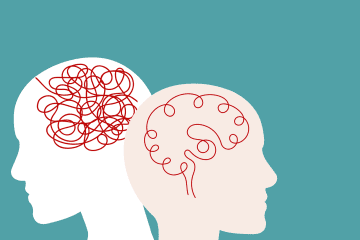
How time management powerfully affects your mental health
In the fast-paced world we live in, managing time well can feel like an impossible task. Meetings, deadlines, social obligations, and endless to-do lists can easily make each day seem like a juggling act. Effective time management is more than just a productivity hack but it has a profound impact on mental health.
When you gain control of your time, you reduce stress, increase your sense of accomplishment and create more space for activities that nourish your mind and body. Here’s how mastering time management can significantly improve your mental well-being along with the tips to help you get started.
1. Reduced Stress and Anxiety

Poor time management often leads to stress and anxiety as tasks pile up and deadlines loom closer. Without a clear plan, it’s easy to feel overwhelmed and unsure of where to start. Effective time management brings a sense of order to your day allowing you to tackle tasks one at a time.
By prioritizing and organizing your day, you reduce uncertainty and create a manageable path forward. This reduces the likelihood of last-minute rushes and the anxiety that comes with feeling unprepared or overwhelmed.
2. Improved Focus and Productivity – Quality Over Quantity

When you manage your time well, you’re able to concentrate fully on one task at a time which increases productivity and focus. Instead of multitasking or letting your mind wander to other projects, time management encourages a structured approach that allows you to give each task the attention it deserves. By focusing on quality over quantity, you not only become more productive but also experience a sense of satisfaction and achievement in your work.
3. Increased Free Time and Balance – Make Room for Joy

Poor time management can lead to burnout as you struggle to keep up with work demands and end up sacrificing personal time. By managing your time more efficiently, you can create balance ensuring there’s room for both work and relaxation. A well-structured day allows for pockets of free time which you can use to pursue hobbies, exercise, or connect with loved ones or activities that enhances happiness and mental health.
4. Enhanced Self-Confidence – Take Control of Your Day

Time management allows you to set and achieve realistic goals which boosts self-confidence. When you plan, prioritize, and accomplish tasks, you build trust in yourself and your abilities. Meeting goals, no matter how small provides a sense of progress that is crucial for positive self-esteem and mental well-being. This sense of accomplishment has a ripple effect giving you the confidence to tackle future challenges with a clear and optimistic mindset.
5. Prevention of Burnout – Stay Energized and Engaged

One of the most powerful effects of time management on mental health is its ability to prevent burnout. When time feels chaotic and endless, it’s easy to lose motivation, and both physical and mental exhaustion can set in. Time management combats this by encouraging balance and structure. When you intentionally plan your tasks, work becomes more sustainable allowing you to stay engaged and energized without overwhelming yourself.
FINAL THOUGHTS

Time does powerfully affect your mental health
Time management isn’t just about fitting more into your day, it’s about designing your life in a way that prioritizes mental health and well-being. When you take charge of your schedule, you’re actively reducing stress, boosting confidence, and fostering a positive balance between work and personal life.
Implement these time management strategies to improve not just your productivity, but your overall happiness and mental wellness. Remember, you have the power to control your day and make time work for you. Ideas are worthless and useless without implementation. Remember, it works if you work it. Till we meet again in the next post. Peace.



0 Comments